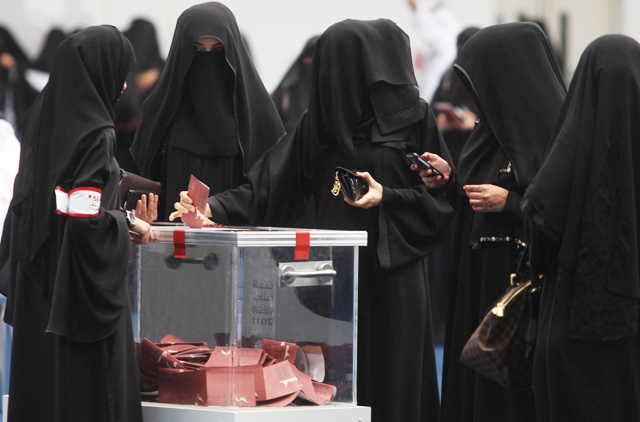A couple of months ago, a good friend of mine decided to get married. She is smart, highly educated and self-reliant. She spent most of her 20s travelling the world, exploring the many faces of reality and challenging her physical and mental limits. I admired her, because she stood tall against every stereotype and every hurdle.
In the UAE, there are many more examples just like my friend, many of them more accomplished, and many even more driven. They’re going beyond the preconceived notions of what women’s roles are in society, and expanding that definition to prove that women can be more than just housewives.
A few days ago, Ahmad Al Amash, the Federal National Council (FNC) representative from Ras Al Khaimah, called for higher financial incentives for men to encourage them to take more wives. To Al Amash, “Spinsterhood is on the rise in the UAE because men opt to marry one woman only.” Al Amash also claimed that “Spinsters are not happy, and that married women and mothers, according to ‘social research’ are much happier”.
One cannot deny that the rate of unwed women is on the rise, and that lifestyles have become more costly, discouraging many to marry. However, the reductive solution to the rising rate of “spinsterhood” masks the more serious question of why so many women are not married and more importantly why the divorce rate is on the rise. One can also not deny the fact that women have grown to become much more independent; opting to pursue higher education and work experience than get married early.
But financial incentives are not the answer and marriage is definitely not the only way to “be happy”.
In fact, in a study by McGrath et al. (1990), published in the American Physiological Association shows that married women have higher rates of depression than unmarried women. On the other hand, marriage protects men against depression much more than it does women. Furthermore, women’s risk of depressive symptoms and demoralisation is higher among mothers of young children and the more children a woman has, the more likely it is that she’ll be depressed.
Abraham Maslow, the American psychologist best known for creating the hierarchy of needs, notes that “autonomy, comfortable acceptance of self, and comfort with solitude are all crucial components of self-actualisation. Marriage can sometimes connote dependence on another human, which prohibits one from reaching this self-actualised state.” In other words, your happiness comes from realising your own personal potential, self-fulfillment, personal growth and peak experiences.
The objective of this article is not to be saturated with strenuous examples of single women’s achievements in the UAE, because the evidence is abundant. However, it seems necessary that we need to re-stress and underscore the already known fact that women’s feats and successes in the UAE are not solely attributed to the “happy” married women. And because we have to repeatedly defend our roles, here are some quick facts:
n The number of Emirati women enrolled in higher education is actually 24 per cent more than the number of Emirati men enrolled in higher education and reflects a staggering statistic: 77 per cent of UAE females continue on to higher education from high school. At that phase of their lives, most women are actually unwed.
n Four UAE cabinet ministers are women.
n Women account for two-thirds of government sector workers.
n Women make up 20 per cent of the diplomatic corps.
n Nine women hold seats within the FNC, accounting for 20 per cent of the membership.
n Women finance one-third of the transactions in the financial and banking sector.
The FNC member also suggested that “Spinsters cost the country expenses without bearing or producing any children”, and while that claim can factually be correct, we run the risk of neglecting the fact that unmarried women of the UAE are still giving back to their country. We forget about the single women who are solely responsible for taking care of their families, we forget about the single women who juggle work, family and college. We forget about the single women who leave their families for weeks and volunteer to help the less fortunate.
Our contribution to this nation, to our people, to our families is not confined or restricted to bearing children. If that was true, we would not be talking about the women of the UAE. So many of the unmarried women are vital, if not foundational, to this country’s economic, social, political and human development. They are the pride of the UAE. How can we, then, call any of these single women a burden?
If we wanted to interest single women, we need to spend more time eliminating the factors that have posed challenges to their advancement, such as gender discrimination and stereotyping, the unsupportive organisational environment, limited recruitment, access to capital, etc.
Inspired by the UAE’s achievement of being the first Arab nation to receive a high ranking in the United Nations’ happiness and satisfaction survey, ‘The Happiest Women In The World’ project (#HappiestWomenInTheWorld) was born late last year, a testament to the fact that women in the UAE are happy because of self-actualisation, regardless of their marital status.
And so I ask, must we women be married to be complete, or to have any sense of achievement if we don’t have a man by our side? Do our accomplishments, contribution, knowledge, love and passion towards our country mean less if we were not married?
Asma Malik is a development specialist. You can follow her on Twitter at www.twitter.com/@AsmaIMalik











